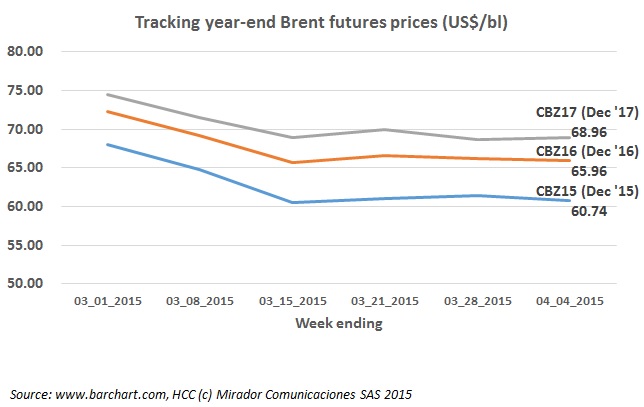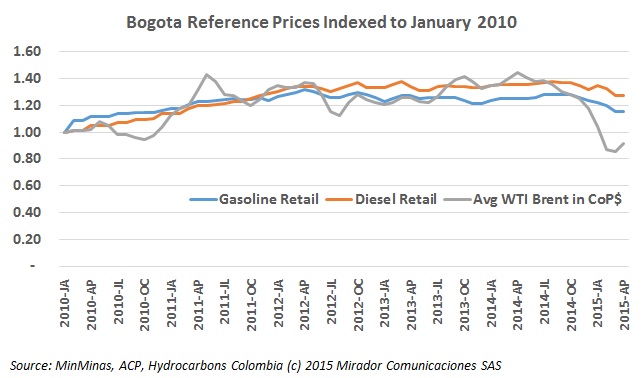As part of its strategy to increase the longevity of Colombia’s proven crude reserves the National Hydrocarbons Agency (ANH) wants to grow the average recovery factor to 35% from the current average of 18%, by 2020.
The General Comptroller’s (CGR) environmental delegate office said that the National Hydrocarbons Agency (ANH) has exposed the environment and country to undue risks by not doing further studies into the impact of fracking before including blocks in the Colombia Round 2014. The CGR also announced it will be focusing more on the use of royalty funds and plans a series of audits and inspections in the second half of this year.
Juan Carlo Echeverry spent his first day as president of Ecopetrol (NYSE:EC) on Monday, April 6 speaking with the outgoing president Javier Gutiérrez, presiding over his first board of management meeting and touring the NOC’s headquarters in Bogotá.
Union and community members across the country march to protect water resources, meanwhile Ecopetrol reminds locals not to eat turtle and iguana meat during Easter week. These and other environmental stories in our periodic wrap up.

Colombia’s corporate regulator (Supersociedades) has created an “elite group” of experts to deal with a growing number of bankruptcies and company restructuring due to the oil price crisis, in the first quarter of the year the company registered two bankruptcies and 12 restructuring of service firms.
The new National Hydrocarbons Agency (ANH) president Mauricio de la Mora met with the president of the Chamber of Oil Goods and Services (Campetrol) Rubén Darío Lizarralde, to discuss a joint strategy to strengthen the oil sector.
Javier Gutierrez has officially stepped aside as the president of Ecopetrol, and in a last interview commented on the “not so low” tax rates paid by the industry and the structural situation which has pushed oil prices down.
The USO has continued to denounce the alleged firing of Ecopetrol (NYSE: EC) worker USO Vice President Edwin Palma when he published information on social media denouncing the high salaries of Ecopetrol management.

The Ministry of Mines and Energy (MinMinas) says that gasoline prices will stay at current levels while diesel experiences a small decrease, blaming factors such as a high price of ethanol and taking noticeable shift in tone since last month’s reduction.

Incident counts went down significantly this week to 11 and it is entirely due to our lowest recording of Armed Forces activity since we started this study in 1Q12.